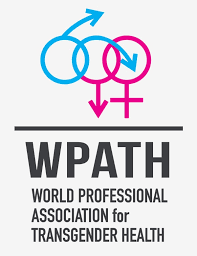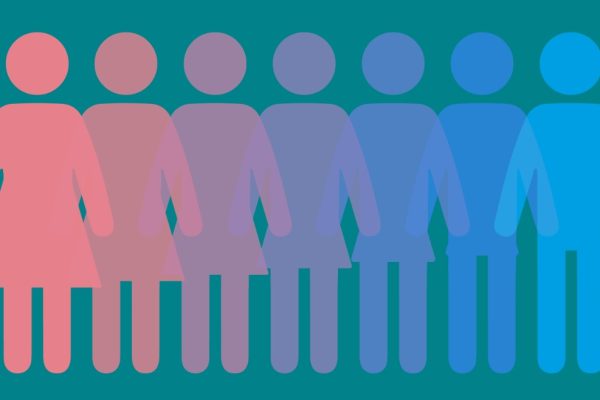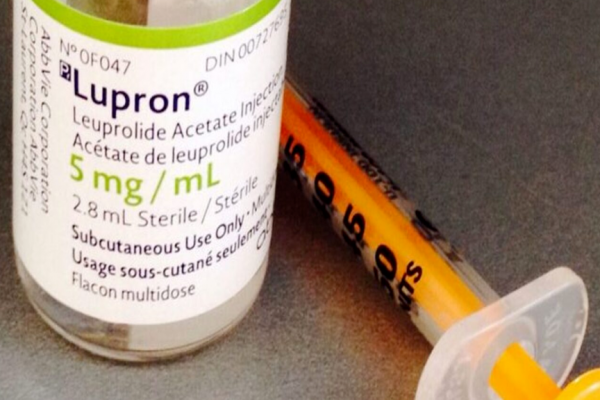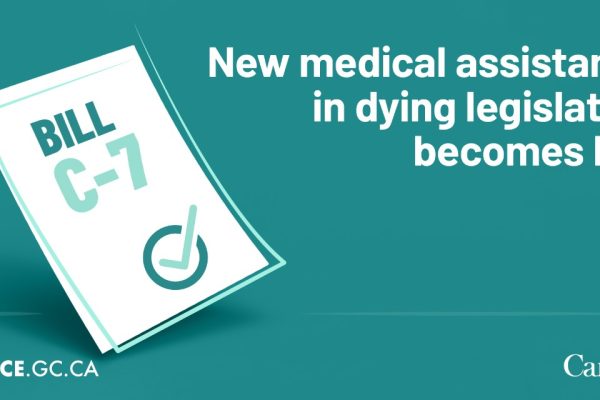WPATH has been extraordinarily discredited once again. An unsealed court document has revealed communication between the Biden administration and senior WPATH staff asking WPATH to remove age restrictions from their newly released SOC 8 (“standard of care” version 8). WPATH initially released SOC 8 with age restriction recommendations for gender affirmation medical treatments including surgeries and then removed these days later.
The court document that reveals this bombshell information is the expert testimony of James Cantor, a Canadian clinical psychologist. All of the email communications were obtained by court order. Cantor was engaged by the lawyers to examine the court-ordered email communications and his report filed with the court outlining the contents is now a public document.
Cantor has taken up a personal mission to shine a light on how WPATH and the AAP (American Association of Pediatricians) have twisted evidence and spread misinformation to promote medical gender transitioning of children and young people. His clinical practice specializes in sexuality and gender transition. Cantor began to question the “medical consensus” around gender-affirmation treatments for minors after he thoroughly fact-checked the 2018 AAP policy statement on gender-affirming care for children. His conclusion of the 2018 policy statement was that the AAP was recommending medical gender transition for children and young people “despite the evidence”. His realization of the misinformation being spread by a supposedly reputable medical society drove him to become involved as an expert witness in many of the US court cases seeking to challenge unquestioned access to medical interventions for gender-distressed youth.
His report exposes emails that reveal both WPATH and the AAP’s wanton disregard for ethical standards of medical care and evidence-based best practice. The following excerpts are taken from Cantor’s affidavit filed for the US case Boe vs Marshall.
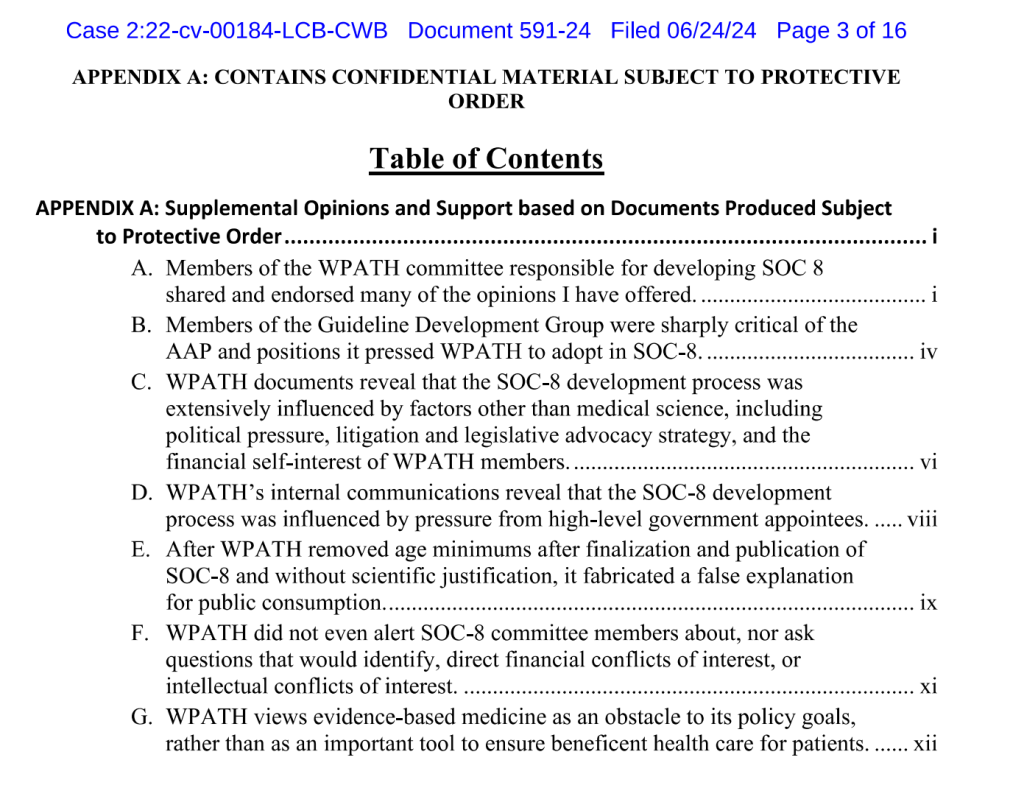
US Government pressures WPATH to remove age restrictions
The specific email communications pressuring WPATH to produce a pro-transition “standard of care” are from the office of US Assistant Secretary of Health Rachel Levine (a transwoman and staunch advocate for trans rights and medical transitioning on demand).

The Office of the Secretary of Health of the US Government specifically applied pressure to remove age restrictions citing concerns that this could “affect access to health care for trans youth”.

The draft release of WPATH’s SOC8 and the initial release of the final document included age restrictions for both hormonal interventions and gender affirmation surgeries. But WPATH eventually caved to political pressure from the US government.
AAP vs WPATH – Both Abdicate the Duty to Safeguard Children
Cantor’s expert testimony is brilliant at exposing this malfeasance. His affidavit explains how WPATH made changes to SOC 8 for the “explicit purpose of minimizing members’ risk of malpractice liability”.
WPATH made changes to SOC-8 for the explicit purpose of minimizing members’
– James Cantor, PhD Expert Testimony Boe vs Marshall
risk of malpractice liability.
The AAP is complicit in this as well.
The emails in Cantor’s testimony illustrate that clinicians have many reservations about how “gender identity” is being treated with a medical pathway. WPATH members criticized the AAP’s position that gender identity is innate and unchanging, while also acknowledging that various factors can influence young people to adopt a gender identity that may not be enduring or “authentic” for who they are.


WPATH committee members and the AAP appear to be at odds over the guidelines and the evidence used to underpin them. WPATH has always ensured that their “SOC” is the gold standard used for justifying treatments given to trans-identifying youth and dismisses the AAP guidelines as “written by a few friends who think the same”.


In a curious twist, even though WPATH is critical of the AAP guidelines they still want the endorsement of such a prestigious medical society. Cantor’s report reveals that the AAP gave WPATH an ultimatum to remove the age restrictions:

The ACLU Piled On As Well
The subpoenaed emails also detail how ACLU staff applied pressure to WPATH to ensure the language within the SOC will help them defend their clients in upcoming court battles. The ACLU has bought into the idea that gender affirmation medical treatments are good for children and wants to ensure they can defend their position in court:


Earlier this year, the WPATH files (containing leaked emails) highlighted significant attempts to cover up evidence and promote medical transition of children and young people even despite many doubts expressed by WPATH members and senior advisors.
This new release of communications that shows the political interference in WPATH’s so-called standard of care will surely be the last nail in the coffin for WPATH.
The Cass Report cast WPATH as a dubious “standard of care” and there are now 9 systematic reviews of evidence that point to the need for caution and restrictions on medical gender interventions for young people.
Why does this matter for Canada?
Government-funded healthcare in Canada uses the WPATH SOC as the official rationale to fund transgender medical treatments for minors. Ask any Ministry of Health in Canada how they justify funding gender transition services for minors and they will reply “WPATH”. This email communication from the Ontario Ministry of Health is one example:

WPATH and the AAP are no longer credible organizations to trust for developing guidelines on medical treatments for gender-questioning youth. Do we have any credible groups in Canada? The Canadian Pediatric Society doesn’t even know the evidence they’re quoting in support of gender affirmation treatments for minors. CPATH (an offshoot of WPATH in Canada) has been overtaken by activists more rabid than even the WPATH group. Rainbow Health Ontario and other LGBTQ special interest groups who influence government policy (see one of our latest breakdowns of an Ontario Health Quality initiative for transgender health care) approach this topic from a human rights angle rather than rely on evidence-based medicine.
Three options lie before us:
- Continue to be pressured to adopt the trans-rights community value system that “children know who they are” and adopt a child-led gender journey and “rights” approach to trans healthcare for minors, despite the growing amount of evidence pointing to medical harms;
- Adopt a cautious and evidence-based approach to the social and medical transitioning of children that places social and medical transition under clinical research protocols and;
- Ban medical transition for children and young people altogether (a position that is becoming more likely to be supported through the Courts by the available medical evidence).
There is still little movement in Canada to indicate how all this will play out. In light of the growing body of evidence, we continue to advocate for the need for caution along with appropriate restrictions and oversight to properly safeguard gender-distressed children.
